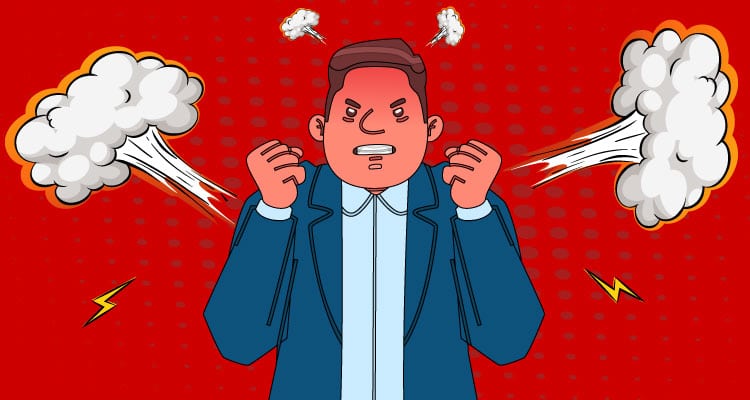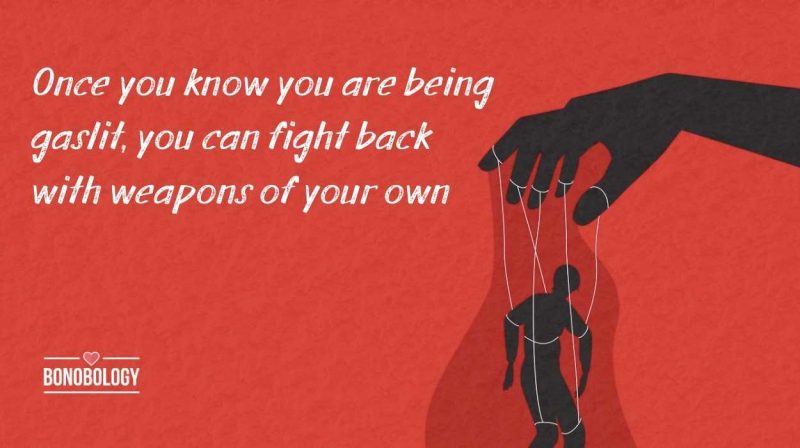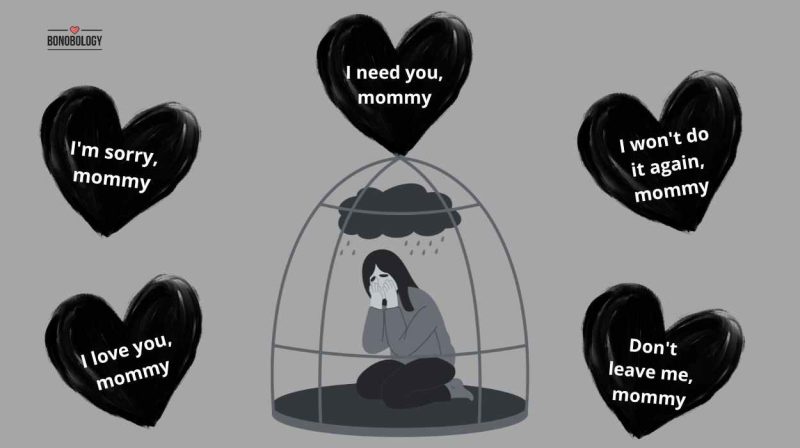Looking for tips on how to deal with an angry person in a relationship? If you got yourself a hostile husband, a grumpy wife, or a hot-headed partner, it’s not easy being in love at all times. You never know what to say or do; you are always walking on eggshells in order to avoid a volcanic explosion. Raised voices, clenched fists, temper tantrums, name-calling: Living with someone with anger issues is not a pretty sight.
That is not to say that expressing anger toward a partner is necessarily a bad thing or that this emotion needs to be repressed. It’s always better to let the negative emotions out instead of suffering in silence as long as it is done in a healthy manner. Expression of anger shouldn’t reach the point of verbal or physical abuse. However, when you’re in a relationship with or dating someone with anger issues, such unhealthy expression become the norm.
Dealing with anger from another person for the long term can leave you emotionally wounded, and the scars can affect your mental health as well as your current and future relationships. This is why we reached out to emotional wellness and mindfulness coach Pooja Priyamvada, certified in Psychological and Mental Health First Aid from Johns Hopkins Bloomberg School of Public Health and the University of Sydney. She specializes in counseling for extramarital affairs, breakups, separation, grief, and loss, to name a few. We are here to help you figure out how to deal with someone with anger issues in a relationship.
What Causes Anger Issues In A Person?
Table of Contents
As Pooja points out, “Any person can get angry. Some people might have a tendency to lose their temper quickly. Some might have specific triggers. Others might have just a phase when their anger is off the mark. Feeling angry in a relationship often comes from sadness, frustration, or angst. When people feel they are losing control of anything or feel offended, they enter the anger cycle.”
But what is the root cause of rage issues in a marriage or relationship? Research points out that the evolutionary roots of anger and resentment can be traced back to animals preparing for an attack to ward off opponents. Anger is a response to survival threats and it serves to suppress fear, pain, and shame.
Another study shows that avoiding coping with stress and low self-esteem in interpersonal problem-solving often adds fuel to the temperament of angry people. If your situation is so bad that you’re constantly worrying about thing like “My husband’s anger gives me anxiety” or “My wife gets mad at everything I do”, you should first comprehend the possible causes of anger issues in relationships:
- Upbringing in a household wherein being angry was normalized
- Unresolved feelings about past trauma/abuse
- Unexpressed grief from losing someone special
- Consequence of alcoholism
- Symptoms of Attention Deficit Hyperactivity Disorder/bipolar disorder
- Overcompensating for low self-esteem
- Suffering from anxiety/depression
- Feeling frustrated/powerless/threatened/attacked
- Response to unfair treatment/feeling invalidated emotionally
How To Deal With An Angry Person?
Our reader, Melissa, writes to us from Texas, seeking help in dealing with anger, “My boyfriend has a temper problem. We have different beliefs on certain matters but he is so obstinate when it comes to accepting other opinions that even small things lead to big, ugly fights. To be honest, my boyfriend’s anger is ruining our relationship. Should I walk away or seek professional help for him? Can you help me figure out how to deal with someone with anger issues in a relationship?”
Pooja emphasizes, “An angry spouse or partner is often impatient and shows an unwillingness to listen to any contrary opinion. They don’t even realize the magnitude of their behavior during fits of rage.” Dealing with someone with anger issues can hence be tricky. Here’s your guide on how to deal with an angry person in a relationship:
1. Don’t shout back
An eye for an eye? Oh no, that’s not the right strategy to resolve angry spouse/partner issues and will not solve your relationship problems. If one partner is losing their cool and the other person, too, joins the screaming match immediately, it will be a complete disaster. Talking about how to deal with an angry partner, Pooja says that when dealing with a controlling woman or a husband with anger issues, these are the big no-nos:
- Shouting back
- Blaming them
- Bringing up old issues
- Trying to shut them down
Related Reading: 8 Ways Blame-Shifting In A Relationship Harms It
2. Use anger management techniques
Pooja explains, “Venting negative feelings is one of the most effective strategies for de-escalating anger. While it is healthy to vent, you should do it in a non-violent and sensitive way. One can write or express anger in some form of performance art too. Anger can be expressed creatively.”
A variety of techniques can be used to defuse anger in a relationship. Tell your partner calmly about the different ways in which they can combat their anger. Here are some effective anger management techniques, according to research:
- Counting (letting the first impulse to react pass)
- Breathing slowly (yoga/meditation calms the mind)
- Taking a time-out and stepping back from the situation
- Brisk walking/running/swimming
3. Let them express their reasons for anger
“My boyfriend has a temper problem.” “My girlfriend lashes out at me over the most insignificant things.” “My spouse is like a volcano waiting to erupt.” If these are the thoughts you’re struggling with, perhaps shifting your perspective can help in dealing with the situation more effectively. Perhaps, all your partner needs is to feel heard but hasn’t quite learned how to express that need in a healthy manner.
Pooja, “Anger management in relationships is incomplete without empathy. As long as they are not violent or abusive, let them express themselves. Try to be compassionate toward them.” So, instead of targeting them back by saying things like “You always shout at me when you are angry,” say something along the lines of, “Can you tell me what’s bothering you?”
Your partner should not feel attacked by anything you say. It will trigger them to lash out even more. If you are looking for tips on how to deal with an angry boyfriend/partner, the most important one is trying to find out the underlying reason behind their anger. Open communication about how they treated you is a must, but don’t have it during their outburst.
4. To calm an angry partner, offer them a solution
Still figuring out how to deal with an angry person in a relationship? Well, it helps to be mindful of the fact that when a person loses their cool, there must be some unresolved issues at the back of their mind. Something must have not gone their way resulting in the outbursts. Loving someone with anger issues means sometimes you need to look for the thing they are unable to articulate. For instance,
- If they are cross with you and you realize that you are, in fact, at fault, simply set aside your ego and apologize sincerely
- If your partner is punishing you for something completely unreasonable, ask them what went wrong and their expectations regarding that particular matter
- Clarify your perspective and tell your partner your narrative realistically, without first dismissing theirs
- If they have an open mind, you can discuss the problem at hand and mutually come to a solution
- In case they are mad at someone else, you may suggest what they could do or say differently to handle that situation more calmly
Related Reading: Emotional Flooding: What Does It Mean In A Relationship?
5. Distract them
An effective tip on how to deal with someone with anger issues in a relationship is diverting their attention to something else, in a subtle way. You can say something along the lines of “Hey, let’s go for a walk. Let’s get some fresh air and clear our heads.” In fact, a study found that rumination increases the feelings of anger, while distraction helps in decreasing them.
You can use a funny video or crack a joke to defuse their anger. A distraction will help them to get back to their normal self, even if for a second, and reflect on how they have been reacting. However, do this only if your partner is moderately angry. If a person has intense anger issues, this can irritate them even more.
Dating Someone With Anger Issues – Expert Strategies To Make It Work
Given that you are still reading, we can assume your partner has anger issues or perhaps you don’t know how to deal with someone who blames you for everything. And that constant anger, the air of negativity – it’s all putting you in deep emotional distress. We feel you. After all, it’s not easy being a relationship with or dating someone with anger issues. If you could keep an open mind and practice patience for a little longer, we can definitely help you deal with an angry partner.
The first step toward overcoming anger and resentment in a relationship is to understand the cycles of anger. Pooja explains, “The arousal cycle of anger has five phases: trigger, escalation, crisis, recovery, and depression. Understanding the cycle helps us to understand our own reactions and those of others.” Here are the 5 phases of anger:
- Phase 1 of anger: The trigger phase is when an event gets the anger cycle started
- Phase 2: The escalation phase is when our body prepares for a crisis with increased respiration and heart rate and raised blood pressure. Muscles tense up, the voice may become louder or acquire an altered pitch, our eyes change shape, pupils enlarge, and brow falls
- Phase 3: The crisis phase is when our survival instinct steps in (the fight or flight response). The decisions we take during this phase lack quality judgment
- Phase 4: The recovery phase takes place after some action has resulted during the crisis phase. The reasoning starts to replace the survival response
- Phase 5: The post-crisis depression phase is when the heart rate slips below normal so the body can regain its balance. We experience guilt, regret, or emotional depression
Living with someone with anger issues can affect your mental health. But giving your partner tips to calm down in the escalation phase or the crisis phase is just futile. They are not in the right frame of mind at that time. Their anger is messing with their minds and yours too. So here are some expert-backed tips on how to deal with an angry boyfriend/girlfriend/partner:
1. Make a note of your partner’s triggers
To cope with passive-aggressive behavior or the full-fledged rage of your partner, you need to be one step ahead of them. So, your partner has explosive anger. But what exactly brings it on? Identifying these triggers is extremely important to defuse anger in a relationship, but how?
Pooja answers, “The first step is to observe and introspect but sometimes it isn’t easy to identify them on their own. So one must seek help from a licensed clinical psychologist.” If at any point you consider counseling, our panel of experts is always here to help you with various methods. Here are some common examples of anger triggers. See if one of these leads to outbursts from your partner:
- Being disrespected/invalidated/not heard
- Insulting language
- Traffic jam
- Breach of personal space
- Heavy workload
- Financial problems
- Lack of appreciation/fair treatment
2. Tell your partner about grounding techniques
Offering advice on how to deal with someone with anger issues in a relationship, Pooja says, “Remember the escalation phase of anger? In it, our body prepares for a crisis with rapid breathing, increased heart rate, and raised blood pressure. The muscles tense for action, the voice may become louder, and the pupils enlarge. Tell your partner to take note of these things next time they feel angry. Their body stance may change as well.”
The strategy that Pooja has suggested is called grounding. As research points out, this technique is common among dance movement therapists and body psychotherapists. It expresses a stable physical and emotional presence, supported by the ground. If your partner is trying to learn how to stop being aggressive and angry, here are some other grounding techniques they can use to calm themselves:
- Listening to music
- Listing things that bring them joy
- Touching something comforting (and feeling the fabric on their skin)
- Sitting with a pet
- Watching funny videos
- Acknowledging the root emotion: Pain, sadness, exhaustion, etc.
Related Reading: Verbal Abuse In Relationships: Signs, Effects And How To Cope
3. Suggest behavioral techniques
You may not be aware but what if your partner is also looking for tips on how to deal with anger in a relationship? They just don’t know how to channel their negative emotions and irrational thoughts in a refined manner. Research points out that behavioral and cognitive restructuring techniques are pretty effective in case of rage issues in a marriage or relationship. Here are some of the behavioral techniques approved by the APA (American Psychological Association) that your partner can use:
- Repeating calm words to themselves like “Relax” or “Take it easy”
- Saying “I would like” instead of “I demand” or “I must have”
- Slowing down and thinking before answering
- Using humor as a coping mechanism

4. Be patient and kind with an angry partner
“When you’re living with an angry person, know that their anger is adversely affecting their mental health too. It can dent their self-confidence and self-respect,” says Pooja. It is killing them from the inside. So, you can try to be more empathetic toward your angry partner, instead of pointing fingers at them.
Pooja adds, “Don’t respond immediately. Let the immediate reaction pass and then respond. Take the issue up with the person when both of you are calmer.” So, an expert tip on how to deal with an angry person in a relationship would be to allow the negative energy to pass first. Then have a rational discussion. They will be more open to understanding your point of view when they are calm.
If they are keen on taking responsibility for their actions and have a problem-solving attitude, you may suggest they join anger management classes. Just the assurance that in this unfair world, you are there to hold their hands might bring you one step closer to building a healthy relationship.
5. Put yourself first
When struggling with the thought of how to deal with an angry partner, self-care should be your number one priority. We receive emails from our readers: Someone’s boyfriend gets angry easily and tends to break things. Another person says, “My girlfriend and I fight every day over petty stuff.” There are more. And they are all living in a rabbit hole of negativity.
So, as you are dealing with someone with anger issues, you have got to create a positive environment for yourself to cultivate positive energy. Here are some tips for you:
- Take care of yourself through yoga/meditation or even a cup of tea or going for a swim (you can only be a safe space for someone else if you’re grounded enough)
- Do not sacrifice anything dear to your heart to placate an angry husband or partner
- Do NOT (even for a second) believe that something is wrong with you or that you need to change for them to be less angry/abusive
- Keep your family members or friends posted about your situation. Sharing often alleviates suffering
- Make a detailed safety plan – whom you can call or where you can go in dangerous situations. Always keep the national domestic violence hotline numbers handy in case you have an abusive partner
Related Reading: 11 Things To Do When Someone Treats You Badly In A Relationship
6. Don’t tolerate disrespect
Just because we asked you to be kind to your partner doesn’t mean we are justifying their actions on any level. Neither do we advise you to stay and put up with this mental abuse. Stand up for yourself whenever they cross the line of basic decency and disrespect you, insult you, or abuse you in some other way. It doesn’t always have to be loud or aggressive. Even silent treatment after every fight is a form of disrespect.
That’s when your communication skills prove to be beneficial. When you are countering angry spouses/partners, you need to choose your words carefully so it doesn’t escalate the argument any further. Acknowledge that you understand where they are coming from, you are open to discussing the matter, but at the same time, make it clear how they are overstepping your emotional boundaries.
- Set boundaries by saying, “I am not willing to be yelled at. I really want to understand where you’re coming from. But now is not the right time”
- You can also say, “I get that you are upset. But my attention is all over the place at this moment. Can we reconnect at a better time?”
- Say this if you’re feeling overwhelmed, “I love you. But it’s difficult to listen when you are shouting at the top of your lungs. Let me know when you can talk without pointing fingers. I am always here for you”

7. Think about the bigger picture
At this point, there are a few questions you should ask yourself and find your own answers. Let’s break it down for you:
- Do you need a strategy for the long term? What we mean is, are you on the verge of a breakup if these anger control techniques don’t show any instant results? Or you are determined to spend the rest of your life with this person?
- If you plan on staying, first, you should check your own actions. Is there anything you are doing that particularly gets your angry partner all riled up? These issues can always be discussed and resolved by the intervention of a couple’s counselor
- If the problem lies in them, you have to learn to pick your battles for your own sanity in the long run. You decide which ones are worth fighting for and you let the rest go
- Finally, if you try all this and it still doesn’t work out, don’t feel guilty for leaving your marriage or relationship. Make sure you break up in a public place to ensure your safety and express everything to them with sincerity and honesty
We hope you have a better grasp on how to deal with an angry person in a relationship. Also, remember that your job is not to change your partner or ‘fix’ them. All you can do is influence them with love and your own boundaries, and enable an environment of cooperation instead of control. At the same time, you don’t have to be submissive and fearful of your partner. Treat them with respect but also be assertive so that you can get the respect that you deserve.
Key Pointers
- Don’t shout back or bring up old issues when your partner is angry
- Persuade your partner to try their hand at brisk walking or deep breathing
- Also, make sure that you validate their feelings and distract them
- Suggest a good therapist to them and tell them about grounding techniques
- Be patient, kind, and empathetic; your job is not to ‘fix’ them
- If your relationship is becoming physically/mentally abusive, walk away
We are all human beings with obvious flaws and shortcomings. Your partner deserves a chance to overcome their anger issues. At the same time, you have your own limitations and there’s only so much you can do to help them without damaging your own mental health. Try everything in your power so you don’t have to regret later, no matter what decision you make in the end.
FAQs
Yes, loving someone with anger issues can get really exhausting sometimes. If you’re unable to understand how to deal with an angry partner after repeated attempts and if they are not open to seeking help, the relationship/marriage can even become toxic and abusive.
Anger issues can cause permanent scars in a relationship. They affect the physical and mental health of both the people involved. If your partner has explosive anger issues, it prevents you from being honest or comfortable with them.
What Is Disorganized Attachment Style In Relationships? Causes And Signs
Your contribution does not constitute a charitable donation. It will allow Bonobology to continue bringing you new and up-to-date information in our pursuit of helping anyone in the world to learn how to do anything.























Featured
15 Signs You’ll Get Back Together With Your Ex
How To Get Over Trust Issues — A Therapist Shares 9 Tips
Learn How To Forgive Yourself For Hurting Someone You Love
How To Find Peace After Being Cheated On — 9 Tips From A Therapist
How To Forgive A Cheating Husband: 15 Helpful Tips
35 Disturbing Signs Of Gaslighting In A Relationship
What Is Narcissistic Ghosting And How To Respond To It
‘My Husband Starts Fights And Then Blames Me’: Ways To Cope
How To Rebuild Your Life After The Death Of A Spouse: 11 Expert-Backed Tips
My Husband Died And I Want Him Back: Coping With Grief
“Am I Unlovable” – 9 Reasons You Feel This Way
11 Signs Your Girlfriend Was Sexually Abused In The Past And How To Help Her
Coping With Breakups: The Must-Have Breakup Apps For Your Phone
15 Signs You Are Wasting Your Time Trying To Get Your Ex Back
Why Are You Obsessed With Someone You Barely Know — 10 Possible Reasons
33 Phrases To Shut Down Gaslighting And Silence Gaslighters
The Emotion Wheel: What It Is And How To Use It To Build Better Relationships
The Role Of Supportive Relationships In Addiction Recovery
7 Signs You Have A Verbally Abusive Wife And 6 Things You Can Do About It
Mommy Issues In Women – Meaning, Psychology, And Signs